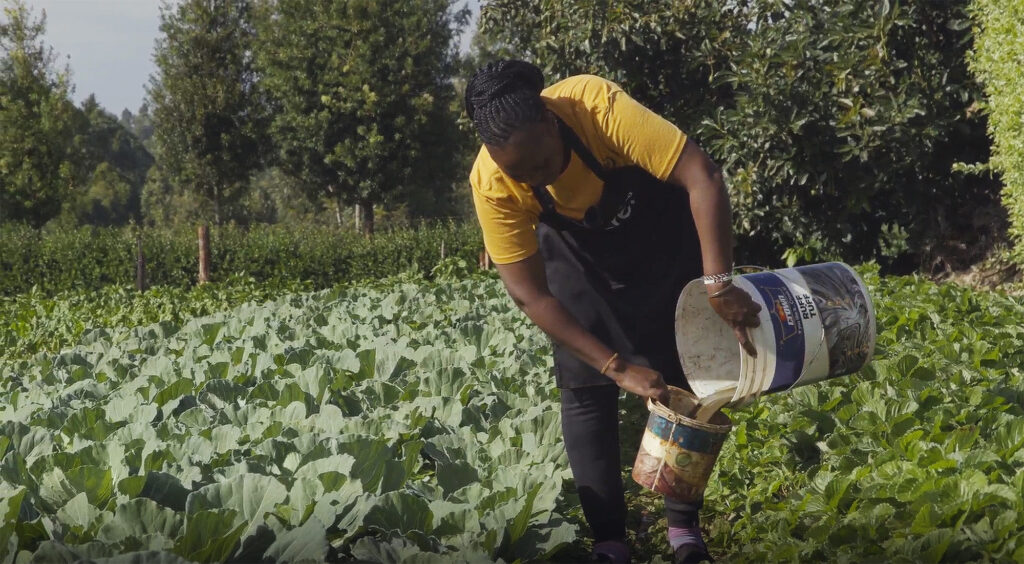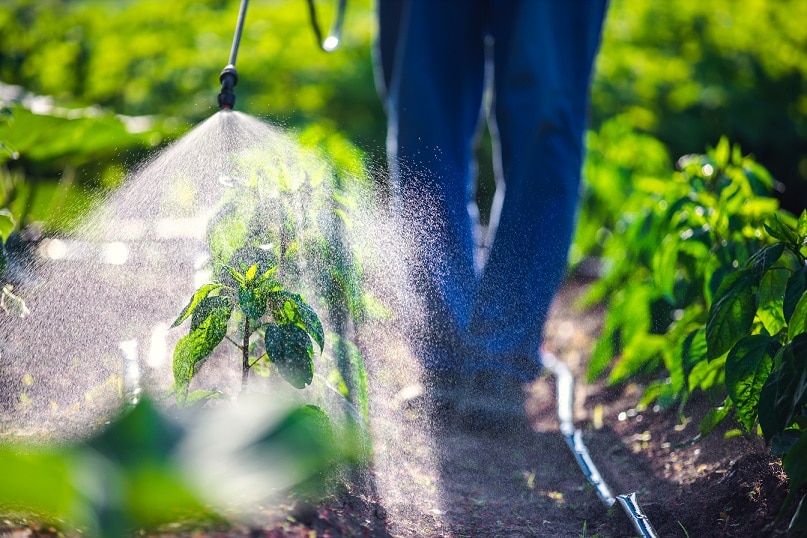
The Definition: Manure and Fertilizer
Manure is decomposed solid waste from animals, especially cows, chickens, and horses, spread on the soil to support plant growth. Manure can be used as the primary material for obtaining compost, fertilizer, and biogas.
The term fertilizer refers to any organic or chemical compounds used to nourish plants, whether it’s made of manure or other organic or inorganic substances.
Manure and fertilizer include primary plant nutrients, nitrogen, potassium, and phosphorus, which are vital for growing healthy plants. They’re also rich in micronutrients and minerals that contribute to keeping plants and soil healthy.
What Is the Difference Between Fertilizer and Manure?
The differences between fertilizer and manure go from the production process to their long-term effects on the environment. Here are some of the most important elements that differentiate manure and fertilizer:
- Manure is an organic substance made entirely of animal waste and agricultural materials. Fertilizers can be organic or inorganic, depending on the ingredients used in the manufacturing process.
- Manure decomposes in compost piles, open pits, or digesters. On the other hand, most fertilizers are manufactured in factories, usually using a chemical process.
- Manure can only include a limited amount of plant nutrients, which are difficult to control, because it’s a natural product obtained from animal waste. Fertilizers are rich in plant nutrients, as the manufacturing process is more precise and involves using a wide range of ingredients.
- The decomposed plant and animal waste in manure add humus to the soil, but fertilizer doesn’t have this ability.
- The soil and plants slowly absorb manure because it’s insoluble in water. Fertilizers dissolve quickly in water and boost plants almost instantly.
Advantages and Disadvantages of Manure
Manure advantages:
- The organic matter in manure improves soil structure and its ability to store water and nutrients, increasing water use efficiency.
- Manure has carbon, phosphorus, and potassium, which feed microbes in the soil and allow them to make nutrients available to plants in a natural biological process.
- Manure reduces chemical fertilizer usage and environmental costs. With Technology like HomeBiogas, you can turn your manure into rich organic liquid fertilizer.
- Production costs are low, making manure a cost-effective method to improve yield and increase overall productivity.
- It eliminates animal waste from the fields, directly impacting climate change.
Manure disadvantages:
- If the animal waste doesn’t decompose properly, crops and the soil can be contaminated by dangerous microbes, pharmaceuticals, and weed seeds.
- Manure provides significantly lower amounts of nutrients than fertilizers, so it’s not enough to support intensive agriculture or provide immediate results.
- Manure composition will vary with what the animals eat every season.
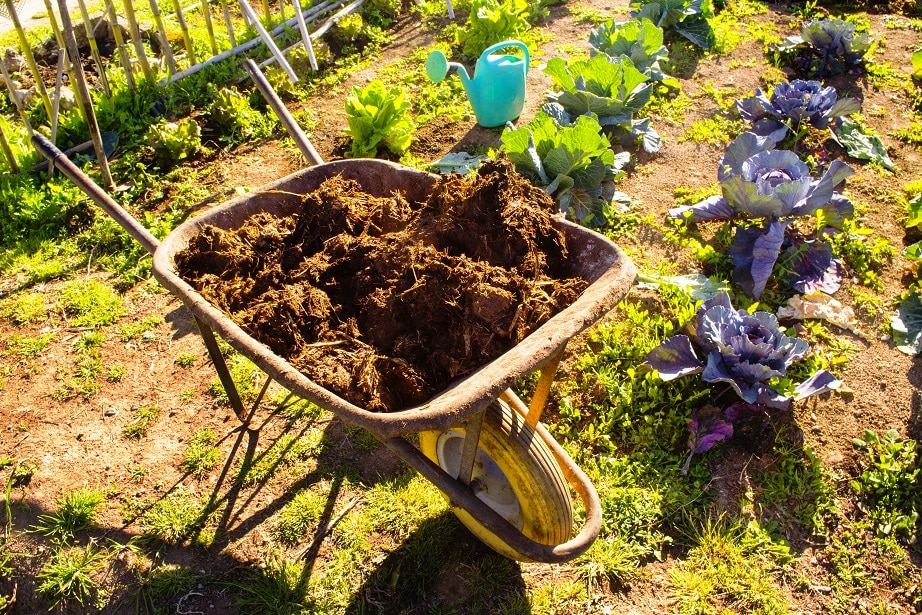
Which Types of Manure Exist?
When talking about manure, we’re looking at two primary categories:
- Hot manure, which is waste produced by omnivores and carnivores — it’s usually obtained from chickens and pigs. It has a high content of nutrients, especially nitrogen, so it needs to be properly aged or composted to prevent the waste from burning the plants.
- Cool manure, which is produced by herbivores, such as alpacas, cows, or horses. It’s rich in macronutrients, microelements, and minerals, suitable for many crops. It also requires less time to decompose. Still, manure should be applied to food crops at least 120 days before the harvest when not composted.
Let’s take a closer look at the most common manure types and their applications in gardening.
1. Chicken manure
Chicken manure it has a higher phosphorus content than many other types of animal waste. It contains 3-5% nitrogen, 1.5-3.5% phosphorus, 1.5-3.0 percent potassium, and a significant amount of micronutrients.
Poultry manure helps soil retention, boosts water and nutrient availability, and lowers any dangerous levels of plant parasite (nematodes, fungus, and bacteria) in the soil. It also increases the amount and diversity of soil microorganisms, which is particularly helpful in sandy areas.
Chicken manure is recommended mainly for growing root vegetables, strawberries, and leafy vegetables.
2. Cow manure
Cow manure increases the diversity of soil bacteria and efficiently regulates the structure of the bacterial community. It’s rich in nutrients like sulfur, calcium, and magnesium and contains about 3% nitrogen, 2% phosphorus, and 1% potassium. However, it includes significant levels of ammonia and potentially harmful microorganisms. As a result, it must be composted before being used in the fields.

HomeBiogas 6
Designed for the next generation of green innovation.
When combined with straw and bedding, manure provides a good source of organic matter for the soil, as it also includes a significant amount of carbon.
Cow manure has a balanced composition and can be applied to any plant. It is also ideal for providing structure and promoting aeration to the soil. Moreover, earthworms will thrive in soil that has been amended with cow manure.
3. Horse manure
Horse manure has a higher nitrogen and nutrient content than cow dung. Moreover, horse waste contains significantly less water than cow manure; therefore, it can include up to twice as much nitrogen when dried.
Horse manure requires composting or aging to kill weed seeds, larvae, and pathogens.
Horse manure is best used for nurturing nitrogen-hungry plants like corn, potatoes, garlic, and lettuce, being also an excellent resource for keeping the grass lawn healthy. It’s not recommended for flowers, tomatoes, or peppers.
Advantages and Disadvantages of Fertilizer
Fertilizer advantages:
- It has all the nutrients and can be manufactured to meet the specific needs of every category of crops and plants.
- Its fast absorption makes it the proper fix for plants that need immediate intervention.
- It enables large production, being responsible for providing food for around half of the world population — just under half of the global population depends on synthetic nitrogen fertilizers.
- It’s available in large quantities everywhere in the world.
Fertilizer disadvantages:
- Fertilizer production costs are higher than manure costs, making it more expensive.
- When overused, fertilizer can damage crops and the soil.
- Some chemical fertilizers can be harmful to plants and the ecosystem.
Which Types of Fertilizer Exist?
Fertilizers can be organic and inorganic:
- Organic fertilizers are made of manure, compost, animal and plant leftovers, algae, and other types of raw matter. They’re excellent sources of nutrients but tend to act slowly, over a lengthy period. Organic fertilizers are relatively easy to make and are environment-friendly, as they aid in the long-term development of the soil.
- Inorganic fertilizers are manufactured components that provide vital nutrients for plants. They support plant growth with balanced nitrogen, potassium, and phosphorus concentrations. Potash, phosphate rock, and lime deposits can all be turned into inorganic fertilizers.
Inorganic fertilizers can be classified further based on the primary nutrient they provide — nitrogen fertilizer, phosphorus fertilizer, and phosphate fertilizer.
Fertilizers come in three forms: liquid, powder, and granular, and most of them must be diluted in water before usage. Granular fertilizers can also be applied to the soil surface and sink into the soil as you water the garden.
Fertilizer vs. Manure: Which One to Use?
There’s no right or wrong answer to this question, as the need for fertilizer or manure depends on multiple elements. Many factors can influence your decision, from the soil type to how healthy your plants are to your lifestyle.
Chemical fertilizer boosts your plants and provides a quick fix when you notice any issues that require immediate intervention. Depending on your crops, you can easily prepare the right mix to ensure you meet the plants’ needs and create a balanced nutritional cocktail to help them thrive.
On the other hand, manure contains lower amounts of nutrients in quantities you can rarely control. Moreover, it works slowly and releases macro- and micronutrients over time. The advantage is that it will help plants and improve the soil’s physical qualities. Manure lightens soil texture, improves rainwater infiltration, and increases the soil’s ability to store nutrients, making it more productive in the long run.
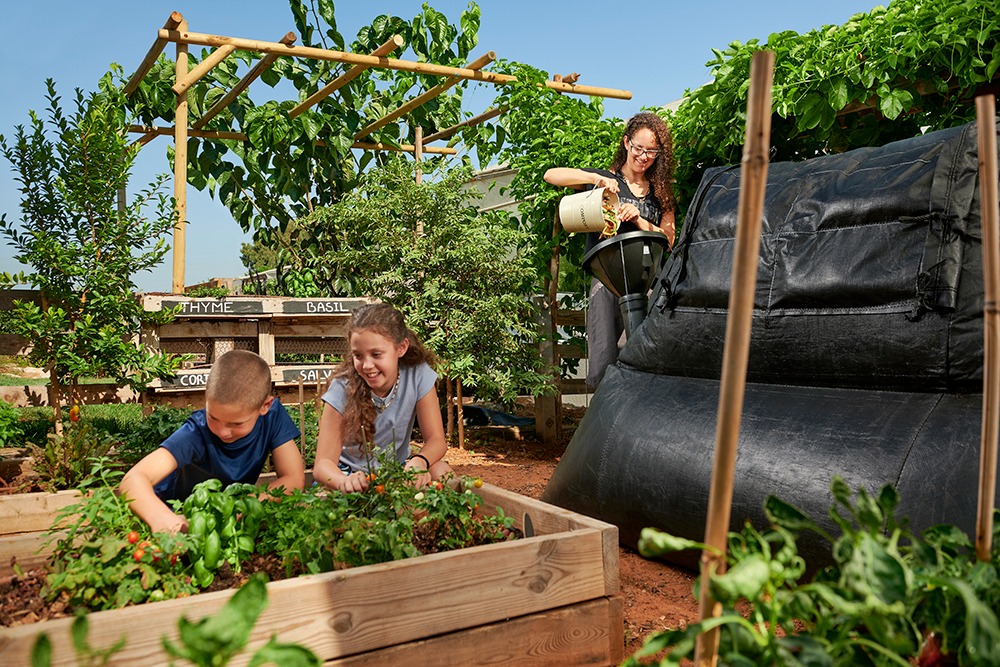
Is it a Good Idea to Use Fertilizer and Manure Together?
In some cases, a mix of manure and fertilizers can be the most cost-effective way to boost yield with minimum environmental impact. However, it’s essential to keep track of the amounts and types of substances you add to your crops to prevent overuse.
Moreover, knowing how each of the macronutrients influences plant growth can also be helpful when deciding to use inorganic fertilizer or manure.
Here are some general guidelines:
- Nitrogen promotes growth, being helpful especially in the middle stages of a plant’s life cycle, when it needs to grow large and stem new leaves.
- Phosphorous is necessary throughout a plant’s life cycle, being responsible for strengthening the root system and stems. It also supports the plants during flowering, seeding, and fruiting.
- Potassium helps plants develop deep, strong roots and protect them from illness and injury. This nutrient is necessary for photosynthesis.
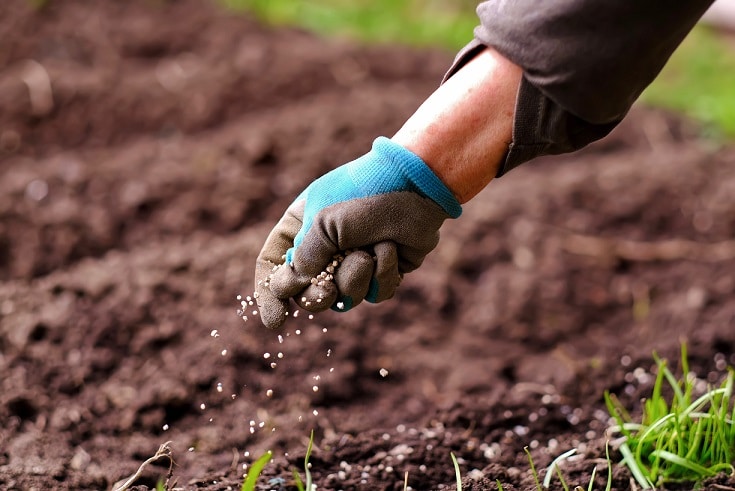
Safety Concerns Regarding Manure and Fertilizer
Manure and inorganic fertilizer can harm crops and pollute the environment in large quantities — the former with less significant impact on soil quality in the long run. They can also harm people who consume the food if applied too close to the harvest period.
Always respect the producer’s recommendations and instructions when using organic or inorganic fertilizer. If you produce manure, you must do your due diligence and learn how composting works and when it’s safe to spread the compounds in the fields. For health and safety reasons, raw animal waste should never get in contact with any food crops.
Conclusions
Manure and fertilizer are essential to obtain high-quality crops and maintain the soil’s characteristics. While there’s no one-size-fits-all recipe to help you decide whether to use one or another, knowing how each impacts your garden can help you make the right choices.
Manure will not always be enough, especially when your plants require a quick fix. On the other hand, not all fertilizers are made equal — only some are environment-friendly and will support both plant growth and soil balance. As long as you follow the manufacturer’s instructions, adding limited amounts of inorganic fertilizers to your garden is generally safe.





